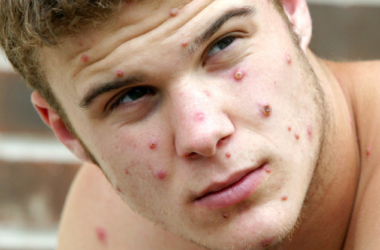What is OCD and how can we identify it?
Obsessive-compulsive disorder is a mental condition that causes upsetting and undesirable thoughts called obsessions, and the person feels the urge to repeat certain rituals or behaviors. OCD can affect people from all walks of life. This disorder is a type of anxiety disorder. It is not very difficult to identify OCD. Common obsessive-compulsive disorder behaviors are numbering or counting objects, washing hands repeatedly, or checking things with the false belief that the unwanted thoughts will leave.
These rituals or behaviors only lessen anxiety for a short period, and people with obsessive-compulsive disorder may have difficulty managing day-to-day activities.
Possible causes of OCD: Personal and Social
Though it is not clear what causes obsessive-compulsive disorder in people, some possible causes could include:
Genetic and hereditary factors
You are more likely to develop obsessive-compulsive disorder if a member of your family also has OCD. The tic-related obsessive-compulsive disorder also seems to run in families.
Biological causes
Functional and chemical abnormalities in the brain could be one of the possible causes of obsessive-compulsive disorder. Studies suggest problems with transmission of some brain chemicals, like norepinephrine and serotonin or impaired function in some parts of the brain, can cause obsessive-compulsive disorder.
Environmental factors
It is also possible that stressful events, abuse, or trauma can lead to the obsessive-compulsive disorder and other mental health conditions.
Does OCD depend on a situation or the behavior of an individual?
OCD of an individual could be situational. For example, a person with obsessive-compulsive behavior may wash his hands frequently. At the same time, he might not have a problem wearing dirty clothes. That means their OCD is not about hygiene in general, but it is related explicitly to hygienic or clean hands.
Another example of situational OCD could be if a person is undisturbed by a messy room but feels uncomfortable with people wearing his clothes. OCD can manifest in various ways, and OCD does not have to manifest in all behaviors.
How does OCD affect a person’s workplace?
In the workplace, OCD may mean a person has to have everything precisely arranged on their desk before they can attend a meeting or begin a task. It may mean that the person may become anxious by upsetting thoughts and needs a moment alone to regroup periodically through the entire day.
Obsessive-compulsive disorder in the workplace usually creates misunderstandings between supervisors, employees, or co-workers. A person having obsessive-compulsive disorder may need to check and recheck files before entering a meeting. Therefore, their co-workers might think that the person is late or disorganized.
The obsessive-compulsive disorder symptoms can also slow a person’s progress at work, giving the impression that they are unmotivated or are procrastinating work. Proper communication with the person’s employer about the disorder may help. This can create the modifications that make success at the workplace possible for people having OCD.
Treatment and remedies to counter OCD
Mental health experts usually consider medication and therapy, or a combination of both, to have maximum benefit in treating obsessive-compulsive disorder. Exposure and response prevention, a type of CBT (cognitive behavioral therapy), is usually the suggested approach.
If you have severe obsessive-compulsive disorder symptoms, or if your OCD symptoms do not respond to treatment alone, your healthcare provider may suggest consulting a psychiatrist about your medication.
Exposure and response prevention generally involves gradually exposing the person to a feared obsession or object, like dirt, and having him learn ways to control the urge to do his compulsive rituals or behaviors. Exposure and response prevention require practice and effort, but one can enjoy an improved quality of life if one learns to manage compulsions and obsessions.
Common medications available to treat OCD
Medications that may benefit obsessive-compulsive disorder symptoms are antipsychotics or antidepressants like selective serotonin reuptake inhibitors (SSRIs). The most efficient treatment for obsessive-compulsive disorder can depend on your symptoms.
Antidepressants approved by the U.S. FDA or Food and Drugs Administration to treat OCD are:
- Fluoxetine (Prozac) for children (seven years and older) and adults
- Clomipramine (Anafranil) for children (ten years and older) and adults
- Paroxetine (Pexeva, Paxil) for adults only
- Fluvoxamine for children (eight years and older) and adults
- Sertraline (Zoloft) for children (six years and older) and adults
Helping someone with OCD at work
If you have someone with OCD at your workplace, you must deal with them patiently and help them stay confident and motivated at work.
Some suggestions to help your colleague or co-worker having OCD include:
- Encourage your colleague to discuss the condition with you to understand how it affects them and be more supportive towards them.
- Encourage your co-worker to get professional help.
- Encourage discussion about the obsessive-compulsive disorder as a treatable and common anxiety condition that is nothing to be ashamed of or embarrassed about.
- Acknowledge improvements and encourage your colleague to reward themselves for their progress.
- Maintain a non-judgmental attitude towards your co-worker and try to be patient and considerate as this will support your colleague having OCD to focus on steps towards recovery. You must not deal with resentment and anger.
- If your colleague’s motivation wanes and they consider stopping the treatment, you must remind the person of the progress they have made.
Learning to live with OCD
Living with OCD could be challenging for a person. However, it is important for you to remember that many people with OCD feel the difference in their lives with effective treatment and medication.
OCD symptoms improve if the person is given proper medical help. Patients learn to manage their obsessive-compulsive disorder symptoms effectively with the help of psychotherapy such as CBT or cognitive behavioral therapy, and more specifically, ERP or exposure and response prevention therapy.
In addition to these strategies, a person with OCD must also learn and practice some relaxation techniques such as meditation, deep breathing, and progressive muscle relaxation because worry and stress are major triggers of obsessive-compulsive disorder symptoms. These relaxation methods can help reduce stress and contribute to a more peaceful life.
Obsessive-compulsive disorder affects nearly 2.2 million people or about 1% of the US population each year. OCD is equally common among women and men. The average age of onset of OCD is 19, with 25% of cases occurring by 15. One-third of affected people first experienced symptoms of OCD in their childhood. Obsessive-compulsive disorder disrupts billions of people’s self-esteem, homes, and relationships every year. The condition can be highly challenging to manage in the workplace.



